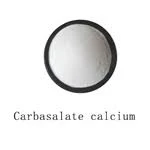- Afrikaans
- Albanian
- Amharic
- Arabic
- Armenian
- Azerbaijani
- Basque
- Belarusian
- Bengali
- Bosnian
- Bulgarian
- Catalan
- Cebuano
- Corsican
- Croatian
- Czech
- Danish
- Dutch
- English
- Esperanto
- Estonian
- Finnish
- French
- Frisian
- Galician
- Georgian
- German
- Greek
- Gujarati
- Haitian Creole
- hausa
- hawaiian
- Hebrew
- Hindi
- Miao
- Hungarian
- Icelandic
- igbo
- Indonesian
- irish
- Italian
- Japanese
- Javanese
- Kannada
- kazakh
- Khmer
- Rwandese
- Korean
- Kurdish
- Kyrgyz
- Lao
- Latin
- Latvian
- Lithuanian
- Luxembourgish
- Macedonian
- Malgashi
- Malay
- Malayalam
- Maltese
- Maori
- Marathi
- Mongolian
- Myanmar
- Nepali
- Norwegian
- Norwegian
- Occitan
- Pashto
- Persian
- Polish
- Portuguese
- Punjabi
- Romanian
- Russian
- Samoan
- Scottish Gaelic
- Serbian
- Sesotho
- Shona
- Sindhi
- Sinhala
- Slovak
- Slovenian
- Somali
- Spanish
- Sundanese
- Swahili
- Swedish
- Tagalog
- Tajik
- Tamil
- Tatar
- Telugu
- Thai
- Turkish
- Turkmen
- Ukrainian
- Urdu
- Uighur
- Uzbek
- Vietnamese
- Welsh
- Bantu
- Yiddish
- Yoruba
- Zulu
दिसम्बर . 10, 2024 21:18 Back to list
Albendazole Administration Guidelines for Goat Health and Parasitic Prevention
Albendazole Dosage for Goats An Essential Guide
Albendazole is a broad-spectrum anthelmintic (anti-parasitic) medication commonly used in veterinary practices to treat various parasitic infections in livestock, including goats. This medication is particularly effective against gastrointestinal roundworms, lungworms, and certain types of tapeworms that can affect the health and productivity of goats. Correct dosing is crucial to ensure effectiveness while minimizing potential side effects.
Understanding Albendazole Albendazole works by inhibiting the metabolism of parasites. Once administered, it disrupts the parasitic cell's ability to absorb glucose and effectively lead to their death, helping to control infestations that can pose severe health risks to goats. This makes it a valuable tool in herd management.
Albendazole Dosage for Goats An Essential Guide
For example, if you have a goat that weighs 50 kg, you would administer between 250 mg (5 mg/kg) and 500 mg (10 mg/kg) of albendazole. It is advisable to consult a veterinarian to determine the most suitable dosage for your specific situation.
albendazole dosage for goats

Administration Method Albendazole can be administered orally, either in the form of boluses, tablets, or as a suspension. When giving medication, you should ensure that the goat swallows it properly. For younger or more obstinate goats, oral dosing syringes can facilitate effective administration. Subsequent to administration, it is advisable to monitor the goat for any adverse reactions.
Pre-treatment Considerations It is also crucial to assess the goat's overall condition before beginning treatment. Goats that are under stress, pregnant, or suffering from other health issues may respond differently to drug treatments. Thorough veterinary advice should be sought in these cases. Furthermore, consider checking for any known drug interactions if the goat is on other medications.
Post-treatment Monitoring After administering albendazole, monitoring the goat for symptoms or changes in behavior is essential. Improvements in appetite, lethargy reduction, and general activity levels are good indicators that the medication is working. Conversely, any sign of adverse reactions, such as vomiting, diarrhea, or excessive salivation, warrants immediate attention from a veterinarian.
Resistance and Follow-up Another concern with the use of albendazole is the potential for resistance development. Over time, parasites can develop resistance to specific medications if they are used too frequently. For this reason, it is advisable to rotate anthelmintic medications to maintain their effectiveness. A regular deworming schedule based on fecal egg counts and professional recommendations can help manage the rate of resistance development.
Conclusion In conclusion, albendazole is a potent and effective solution for managing parasitic infections in goats when used correctly. Understanding the appropriate dosages, administration methods, and post-treatment care is vital for maximizing the benefits while minimizing risks. Always consult with a veterinarian prior to commencing treatment to ensure a targeted approach to health management. Regular monitoring and responsible drug use will contribute to the overall health and productivity of your goat herd, leading to a sustainable farming practice and better animal welfare.
-
Guide to Oxytetracycline Injection
NewsMar.27,2025
-
Guide to Colistin Sulphate
NewsMar.27,2025
-
Gentamicin Sulfate: Uses, Price, And Key Information
NewsMar.27,2025
-
Enrofloxacin Injection: Uses, Price, And Supplier Information
NewsMar.27,2025
-
Dexamethasone Sodium Phosphate Injection: Uses, Price, And Key Information
NewsMar.27,2025
-
Albendazole Tablet: Uses, Dosage, Cost, And Key Information
NewsMar.27,2025













